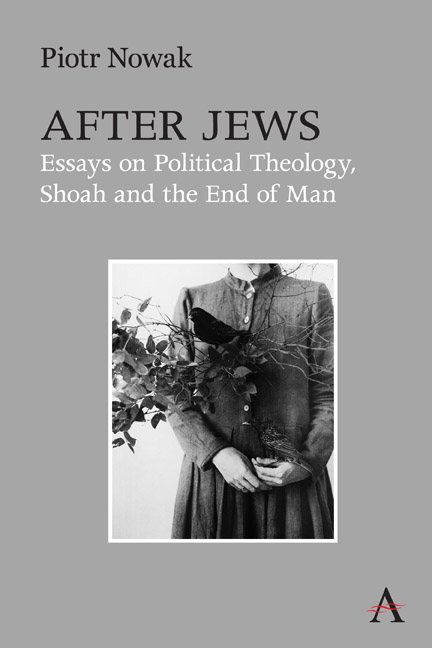Book contents
- Frontmatter
- Contents
- Preface
- Chapter 1 The Chosen Ones
- Chapter 2 The Secret of the Scapegoat
- Chapter 3 Making a Jew into a Christian
- Chapter 4 There Should Be Time No Longer
- Chapter 5 To Look Upon His Face and Yet Not Die
- Chapter 6 Ex oriente lux?
- Chapter 7 Pilloried by Necessity
- Chapter 8 German Rubble
- Chapter 9 Long Live!
- Chapter 10 The Living against the Dead
- Chapter 11 The Child of War
- Chapter 12 Plenty Coups and the End of the World
- Chapter 13 They Refugees
- Chapter 14 The Remainder of Christianity
- Bibliography
- Index of Persons
Chapter 1 - The Chosen Ones
Published online by Cambridge University Press: 13 May 2022
- Frontmatter
- Contents
- Preface
- Chapter 1 The Chosen Ones
- Chapter 2 The Secret of the Scapegoat
- Chapter 3 Making a Jew into a Christian
- Chapter 4 There Should Be Time No Longer
- Chapter 5 To Look Upon His Face and Yet Not Die
- Chapter 6 Ex oriente lux?
- Chapter 7 Pilloried by Necessity
- Chapter 8 German Rubble
- Chapter 9 Long Live!
- Chapter 10 The Living against the Dead
- Chapter 11 The Child of War
- Chapter 12 Plenty Coups and the End of the World
- Chapter 13 They Refugees
- Chapter 14 The Remainder of Christianity
- Bibliography
- Index of Persons
Summary
And I will say to them which were not my people, Thou art my people.
(Hos 2:23)For though thy people Israel be as the sand of the sea, yet a remnant of them shall return.
(Isa. 10:22)Whenever we deal with a significant philosophical or theological text, it is good to first establish both its author and its addressee. The author of the Epistle to the Romans (the possible date of origin being 57 or 58 years after Christ, the beginning of Nero's reign) is naturally Paul the Apostle, which is a historically proven authorship. Here is how an anonymous writer of the second century of the new era described him: “A man small in size, with meeting eyebrows and a rather large nose, bald-headed, bow-legged, strongly built, full of grace; for at times he looked like a man, and at times he had the face of an angel.” But whom did St. Paul address in his writings? Which Romans did he write to, if most of the paragraphs were addressed directly to the Jews? Well, St. Paul addressed his words to Christians (even though the term had not yet been known) as well as potential neophytes who inhabited Rome (it is in this sense that the term “Romans” is used here) and, therefore, to both Jews and Gentiles. Why to the inhabitants of that particular city and not any other? Because in those days Rome played a role similar to that of New York today, namely, a kind of center of the world, its most blood-supplied part. It should be noted that the first Christian communities consisted almost entirely of Christianized Jews, and that Christianity was regarded as a result of tensions within the Mosaic religion, like a family quarrel of a strictly religious, Jewish character, and thus something regular at that time. Even when St. Paul traveled through the vast territories of Asia Minor, fulfilling his missionary service, he would stay primarily at the houses of Jews scattered all over the world. Despite the tension between the new and the old faith, he worshiped Christ within the walls of synagogues.
- Type
- Chapter
- Information
- After JewsEssays on Political Theology, Shoah and the End of Man, pp. 1 - 16Publisher: Anthem PressPrint publication year: 2022



